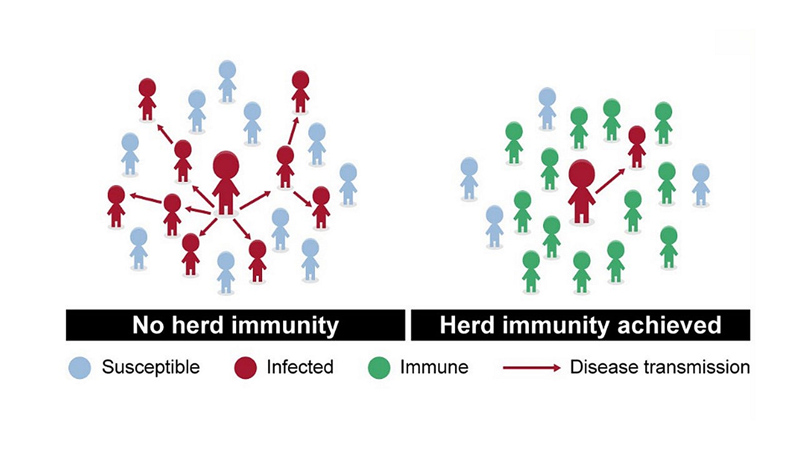Your twenties often feel like the first breath of true freedom. You’re out in the world, maybe navigating college, launching a career, moving into your first apartment, and figuring out how to make a frozen pizza feel like dinner. It’s a decade of experimentation and exploration, and understandably, health isn’t always top of mind. But this is exactly when it should be.
The habits you form in your twenties set the tone for the decades to come. This is your prime time to build strong bones, develop a resilient cardiovascular system, and establish routines that nurture your body rather than stress it out. Your metabolism is typically working in your favor, your body recovers quickly from late nights, and your skin still bounces back from a weekend without water or sunscreen. But just because your body is forgiving doesn’t mean it should be taken for granted.
Regular exercise during this time is about more than aesthetics—though that often becomes a motivating factor. It’s about building muscle mass and maintaining bone density, both of which begin to decline later in life. Cardiovascular health, mental clarity, and emotional resilience all benefit from even moderate amounts of movement. Walking, yoga, running, weight training, and dancing in your living room all count. The key is consistency.
Nutrition can be the make-or-break component of health in your twenties. This is often the decade of cheap takeout, energy drinks, and instant noodles, but it doesn’t have to be. Learning to cook even a few healthy meals not only saves money but introduces you to the foundational building blocks of a balanced diet. Proteins, healthy fats, whole grains, and colorful vegetables don’t just keep you full—they keep your cells functioning at peak performance. And don’t overlook the importance of hydration. Water seems boring until you realize how much your mood, skin, digestion, and brain rely on it.
Sleep, often sacrificed for social life or work hustle, plays a massive role in your overall health. A regular sleep schedule—yes, even on weekends—improves memory, mental health, and physical performance. It’s not glamorous, but it’s powerful.
Equally important are your emotional and mental wellness routines. Twenties are turbulent by nature. Therapy, journaling, meditation, or even having one trusted friend to confide in can build the emotional muscle you’ll rely on later. You’re not supposed to have everything figured out—but this is the decade to start tuning into your body and mind.
Refining and Rebalancing in Your 30s: The Decade of Intentional Living
If your twenties were a chaotic storm of exploration, your thirties often feel like the moment you begin to steer the ship with a bit more confidence. You’re likely more settled, perhaps in a career, a relationship, or even starting a family. And whether or not that’s true for you, one thing becomes undeniable in your thirties: your body starts to ask for more care and attention. This is the decade of fine-tuning and preventative thinking.
You might notice that your metabolism doesn’t hum along quite as effortlessly as it used to. Your joints may protest if you jump into a workout after a long break, and the effects of stress can feel more cumulative. These are signs, not failures. They’re signals to become more strategic with how you approach your health.
Exercise becomes less about sporadic bursts and more about building a long-term relationship with your body. Functional movement, strength training, and mobility exercises become crucial. This is the time to think about joint health, posture, and long-term physical maintenance. Activities like Pilates, resistance training, or even regular stretching can make a world of difference in how your body feels as it ages.
In your thirties, nutrition takes on a deeper significance. You may begin to notice how food affects not just your weight but your energy, digestion, sleep, and mental clarity. A blood sugar crash after a carb-heavy lunch can ruin your afternoon, and a late-night indulgence might interfere with your rest. Start paying attention to how different foods make you feel. This decade is ideal for establishing balanced meal routines that incorporate high-quality protein, fiber-rich vegetables, omega-3s, and antioxidant-rich fruits.
Mental health often requires a reboot in your thirties. There’s an immense pressure to “have it all together,” but behind the scenes, many are struggling with burnout, imposter syndrome, or anxiety. Therapy can become a safe space to explore deeper issues, while mindfulness practices and scheduled downtime evolve from luxuries to necessities.
This is also the decade to start paying attention to screenings and medical checkups. Annual physicals, dental visits, eye exams, and reproductive health checks (like Pap smears, mammograms when needed, or sperm health assessments) are crucial. Preventative health care in your thirties can catch problems early and keep you thriving longer.
Ultimately, your thirties are about shifting from reactive to proactive. You’re crafting a lifestyle that supports longevity—physically, mentally, and emotionally.
Strength and Stability in Your 40s: The Age of Reinforcement
By the time you reach your forties, you’ve likely accumulated a wealth of life experience. This is the decade where clarity often sharpens. You know more about who you are, what matters, and where your limits lie. And with that knowledge comes a powerful opportunity: to reinforce your foundation and build a healthier, more resilient future.
Your body may be more vocal in your forties. Recovery times stretch out a bit longer, and muscle mass starts to decline unless you actively work to maintain it. Weight might settle in places it never did before. Hormonal shifts—for both men and women—begin to affect mood, energy, libido, and sleep. But none of this means decline is inevitable. It means adaptation is essential.
This decade calls for a holistic approach to fitness. Weight-bearing exercises are vital for preventing muscle loss and osteoporosis. Incorporating cardio supports heart health, while activities like yoga or tai chi improve balance and flexibility, reducing the risk of injury. Don’t think of exercise as punishment or a necessary evil; think of it as your body’s maintenance program. Movement becomes non-negotiable if you want to thrive—not just survive.
Nutrition in your forties is less about diet trends and more about nourishment. Your body benefits from whole foods, complex carbs, lean proteins, and anti-inflammatory ingredients. This is an excellent time to reduce added sugars and processed foods, which can exacerbate everything from fatigue to chronic inflammation. Gut health becomes especially important, and integrating prebiotics and probiotics—through fermented foods or supplements—can support digestion and immunity.
The mind, too, needs tending. Midlife can usher in big questions: Is this the career I want? Are my relationships fulfilling? What legacy am I building? These existential evaluations can be unsettling, but they’re also ripe with opportunity. Mindfulness, journaling, coaching, or group therapy can help navigate this emotional terrain with purpose.
Sleep quality often declines in the forties, influenced by stress, hormones, or lifestyle. Prioritizing good sleep hygiene—consistent bedtime, limited screen exposure before bed, and a cool, dark environment—can transform how you feel and function.
Health screenings become even more important now. Blood pressure, cholesterol, blood glucose, and cancer screenings should be regular fixtures. If you’re female, perimenopausal symptoms may begin, and talking to your doctor about hormonal health can provide relief and insight. For men, this is also the time to consider prostate health and testosterone levels.
In your forties, health becomes a conscious lifestyle. It’s no longer about quick fixes; it’s about sustainability and strength. It’s the decade to reinforce your body, mind, and spirit with strategies that will carry you gracefully into the years ahead.
Thriving Beyond Your 50s: Wisdom in Wellness
Reaching your fifties and beyond isn’t a signal of slowing down—it’s an invitation to thrive differently. With each decade, the body evolves, and so should your approach to health. But aging is not a villain. In fact, it offers a richer relationship with wellness, one that is grounded in awareness, adaptability, and appreciation.
The most successful health journeys after fifty are those rooted in self-compassion and consistency. You may not bounce back from stress as quickly, but you often have the wisdom to avoid it altogether. You might not run marathons, but you understand the value of daily walks, swimming, or gentle resistance work that keeps you strong and mobile.
In these decades, preserving muscle and bone density becomes top priority. Sarcopenia—the loss of muscle with age—can begin in your thirties but becomes more pronounced later in life. Resistance training two to three times a week is one of the most powerful tools you have. It protects against injury, supports metabolism, and boosts confidence.
Your heart, too, appreciates attention. Cardiovascular activities—brisk walking, cycling, dancing, or even gardening—support heart health, improve mood, and keep the blood flowing. Flexibility and balance exercises reduce fall risk and improve daily function.
Nutrition continues to be a powerful medicine. As your metabolism changes, your caloric needs may decrease, but your nutritional needs do not. In fact, they often increase. Calcium, vitamin D, B12, and omega-3 fatty acids are key players in maintaining bone health, brain function, and reducing inflammation. Fiber-rich diets support digestion, blood sugar control, and cardiovascular health.
Your digestive system may also become more sensitive, making hydration and gentle, fiber-filled meals more important than ever. Eating slowly, chewing thoroughly, and savoring food becomes not only more enjoyable—but essential.
Mental health in your fifties and beyond is equally vital. The loss of parents, transitions in career, children leaving the home, or even retirement can trigger identity shifts. These emotional waves deserve attention and support. Seeking out connection—through volunteering, community groups, friendships, or even online spaces—can combat loneliness and nourish the soul.
Sleep disturbances, especially among postmenopausal women and aging men, are common but treatable. Addressing underlying causes—such as apnea, hormonal changes, or chronic pain—can greatly improve rest and recovery.
And don’t underestimate the power of purpose. Studies consistently show that people who feel engaged, needed, and purposeful live longer and healthier lives. Whether it’s mentoring younger professionals, cultivating a garden, writing a memoir, or becoming active in your community, your health flourishes when you have a reason to get out of bed each morning.
The Timeless Truth: Health is a Lifelong Journey
No matter your age, the journey toward a healthier lifestyle isn’t about perfection. It’s about paying attention. It’s about learning your body’s language, responding with care, and evolving with grace. Health isn’t a static destination but a lifelong relationship with yourself—one that grows deeper and more meaningful over time.
Each decade brings new challenges, yes, but also new strengths. Your twenties are for laying the groundwork, your thirties for refining your approach, your forties for reinforcing your core, and your fifties and beyond for embracing wisdom and resilience. At every stage, your body is asking the same question: “Will you care for me as I am right now?”
When you listen to that question, when you honor it with food, movement, rest, and love, you don’t just build a healthier lifestyle—you build a healthier, more empowered life.






